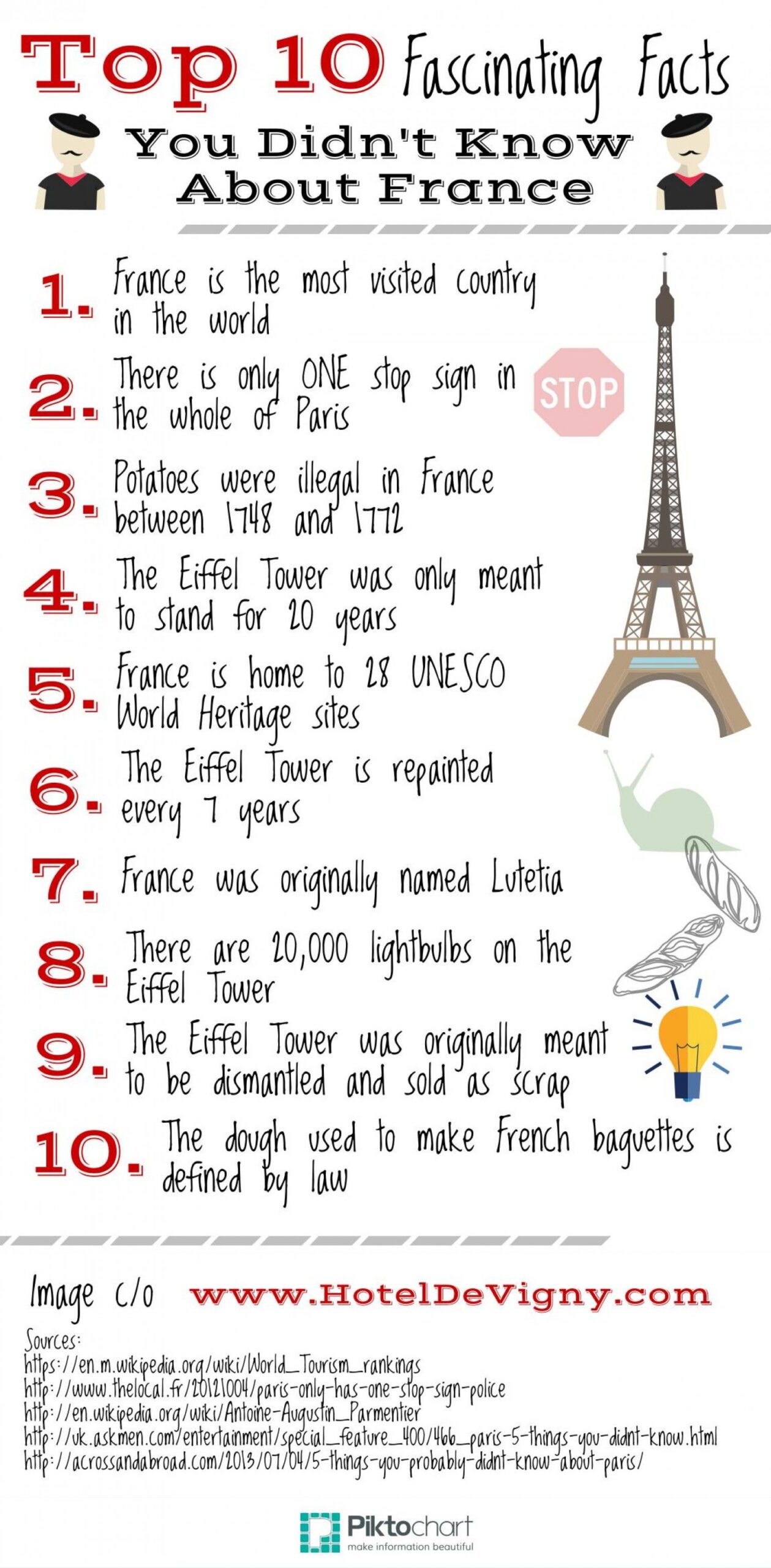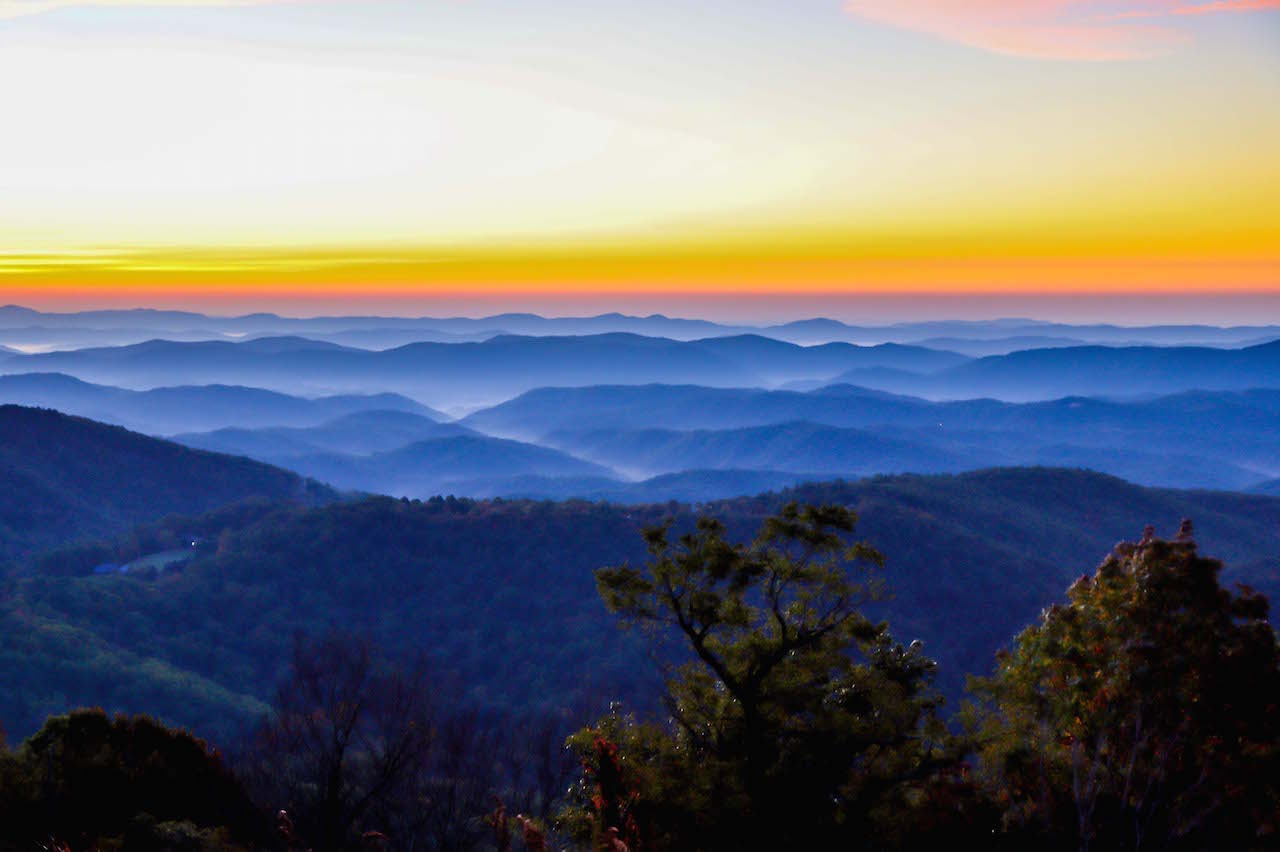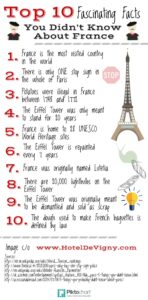Interesting Facts About France: Food, Fashion & Fun Trivia
France, a country that epitomizes beauty, culture, and sophistication, is well-known for its gastronomic delights, haute couture, and historical significance. Here are some captivating facts that delve into various facets of French life, encompassing its food, fashion, and intriguing trivia that highlight its rich heritage.
1. Culinary Capital of the World
France is often revered as the culinary capital of the globe. The country’s gastronomic art is not just about the skills of chefs; it’s about centuries of history and tradition. French cuisine is diverse, ranging from regional specialties to refined techniques honed in Michelin-starred restaurants. For instance, the renowned ‘sous-vide’ cooking method, which involves vacuum-sealing food to retain moisture and flavor, finds its origins in French kitchens.
Moreover, the French enjoy a lavish breakfast of *pain au chocolat* or *croissants*, and a leisurely lunch that may last hours. This dedication to food is so significant that in 2010, UNESCO recognized French gastronomy as an intangible cultural heritage. This acknowledgment underscores the importance of the rituals surrounding meals in fostering community and family ties.
2. Exquisite Wines and Cheese
France is synonymous with fine wines and cheese. Each wine region boasts its unique characteristics and specialties. Bordeaux, Burgundy, Champagne, and the Loire Valley are just a few names that evoke images of vineyards stretching as far as the eye can see. The country produces over 8 billion bottles of wine annually, with a staggering array of varieties to choose from.
Equally compelling are the cheeses; France is home to more than 1,600 distinct types of cheese, each with regional flair and distinct flavor profiles. From creamy Brie to sharp Roquefort, the diversity is astounding. Furthermore, there is a striking tradition of pairing specific wines with particular cheeses, demonstrating the interconnectedness of French food culture.
3. The Art of Fashion
France has effortlessly positioned itself as the epicenter of the fashion industry, particularly in Paris. The city is famed for hosting Paris Fashion Week, an exclusive event that showcases the latest trends from renowned designers. Icons like Coco Chanel and Christian Dior have shaped and influenced modern fashion, emphasizing elegance and sophistication.
The term “haute couture” originates from Parisian fashion houses, which create bespoke clothing pieces that reflect meticulous craftsmanship and artistry. Only a few fashion houses qualify as haute couture, adhering to strict guidelines set by the Chambre Syndicale de la Haute Couture. Each piece is made to measure, showcasing the ultimate in luxury and personalization.
4. Language of Love
French is often referred to as the “language of love,” and for good reason. Its melodic sounds and romantic undertones enhance the beauty of expressions and declarations of affection. The origins of the phrase can be traced back to France’s literary tradition, with esteemed poets and writers using French to evoke deep emotions.
Interestingly, French is one of the most studied languages globally, following Mandarin and English. Its influence extends beyond France, prevalent in many diplomatic discussions and international organizations, reinforcing its status as a significant global language.
5. Quirky Traditions and Festivals
France is replete with quirky traditions and festivals that celebrate the country’s rich culture. One noteworthy event is La Fête de la Musique, celebrated on June 21st, where musicians of all genres perform in streets, parks, and public spaces across cities. It’s a spontaneous exhibition of talent, fostering a sense of community and joy.
Another amusing tradition is the unique way the French celebrate April Fool’s Day (Poisson d’Avril). On this day, it is customary to tape a paper fish to someone’s back as a prank. This lighthearted jest encapsulates the French spirit of humor and mischief.
6. Architectural Wonders
France boasts an array of architectural marvels, ranging from the medieval to modern. The Eiffel Tower, a global icon, was initially criticized upon its inception in 1889 but has since become a beloved symbol of Paris. Visitors are captivated not only by its grandeur but also by the panoramic views it provides of the sprawling cityscape.
Additionally, the Palace of Versailles stands as a testament to French opulence. Originally a hunting lodge, this extravagant palace features magnificent gardens, ornate rooms, and historic significance that reflect the grandeur of French royalty.
7. Breathtaking Natural Landscapes
Beyond its urban vibrance, France is also adorned with stunning natural landscapes. From the lavender fields of Provence to the dramatic cliffs of Normandy, the country’s geographical diversity is impressive. The French Alps offer some of the finest skiing opportunities in Europe, while the coastline along the French Riviera attracts sun-seekers year-round.
Moreover, the Loire Valley, known as the “Garden of France,” is celebrated for its lush vineyards and picturesque châteaux. This unique blend of nature and history creates an enchanting atmosphere that captivates both locals and tourists alike.
8. Cultural Contributions
France has produced countless influential figures in various fields such as literature, philosophy, art, and science. Notable intellectuals include Voltaire, Rousseau, and Sartre, whose works have profoundly impacted modern thought. Additionally, the rich artistic landscape encompasses painters like Monet and Van Gogh, whose masterpieces continue to inspire creativity globally.
In the realm of cinema, French filmmakers have pioneered innovative techniques and genres, significantly influencing the global cinematic narrative. The Cannes Film Festival showcases films from around the world, further solidifying France’s role as a cultural beacon in the industry.
9. Cherished Language and Dialects
France is not only home to a singular, ubiquitous French language but also to an array of regional dialects. Provençal in the south and Breton in the northwest illustrate the linguistic diversity present within the nation. This rich tapestry of languages significantly contributes to local identities and cultural heritage. Moreover, efforts to preserve these dialects have intensified in recent years, highlighting their importance in the broader context of French culture.
Conclusion
France’s magnificent blend of food, fashion, and cultural trivia illustrates the profound depth of its heritage. From the culinary artistry to the chic allure of haute couture, and rich traditions that paint the fabric of daily life, the country continues to enchant and inspire. These diverse elements reveal the complexity of France—a nation steeped in history, yet continuously evolving to capture the hearts of new generations.








